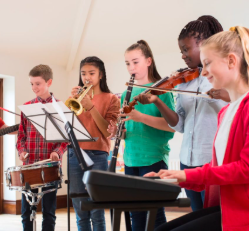Students in music and the arts often juggle a mix of creative expression, performance practice, and academic study. Balancing these elements requires study habits that cater to both structure and inspiration. Whether you’re mastering a new piece or preparing for an art history exam, developing consistent and supportive study strategies can help you thrive.
1. Blend Practice With Theory
For musicians and artists, hands-on practice is just as important as understanding the concepts behind your craft. Try scheduling your day to alternate between practical sessions and academic review. For example, practice your instrument or sketch in the morning, then review theory or historical context in the afternoon.
2. Set Creative Goals Alongside Academic Ones
Create weekly goals that mix technical improvement with creative exploration. Maybe you aim to perfect a challenging passage while also experimenting with new improvisation techniques. This balance keeps motivation high and allows room for artistic growth.
3. Make Use of Visual and Auditory Aids
As a music or arts student, you’re likely a visual or auditory learner. Use flashcards with images, record your own voice for language memorization, or listen to lectures on your subject while commuting. Surrounding yourself with content that matches your learning style can make studying more engaging and effective.
4. Schedule Breaks That Inspire
When taking study breaks, do something that refreshes your creativity—visit an art gallery online, listen to a new genre of music, or take a walk and sketch what you see. These breaks aren’t distractions; they recharge your mind and spark new ideas.
5. Reflect on Progress Through Portfolios
Keep a study portfolio—not just of your artwork or performances, but also of your learning journey. This could include annotated sheet music, sketches, concept notes, or journal entries about what you’re studying. It helps track growth and keeps you focused on your goals.
6. Collaborate and Share
Study groups can work wonderfully in the arts. Try collaborating with classmates on a project or critiquing each other’s work constructively. Talking through ideas, techniques, or music interpretations builds deeper understanding and keeps you connected to your creative community.
7. Practice Mindfulness During Study
Artistic work thrives on presence and emotion. Incorporating mindfulness—such as breathing exercises before practice or reflecting after a study session—can help improve focus and emotional connection to your work.
Final Thoughts
Success in music and the arts doesn’t only come from talent—it grows with consistent habits, reflective learning, and balanced dedication. By developing study routines that respect both the technical and emotional sides of your craft, you’ll stay inspired and prepared for every performance, critique, or exam that comes your way.














